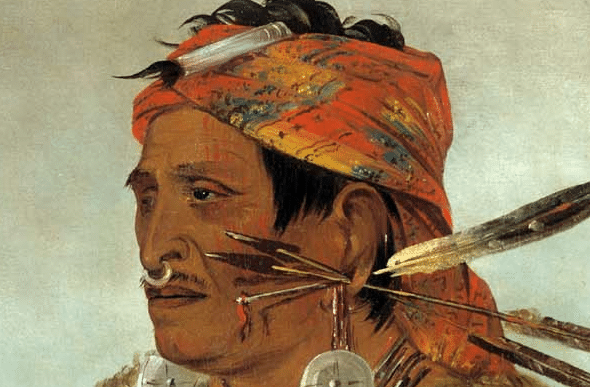by BILL FLETCHER, Jr.

The following essay is not an academic research paper. Neither is it a biography. It draws from the life of Tecumseh and lessons that I believe are useful for the U.S. left. There are many books about Tecumseh, his brother, and their project. One that was especially powerful in triggering my thoughts about Tecumseh’s ongoing relevance is Allan W. Eckert’s A Sorrow in Our Heart: The Life of Tecumseh (New York: Bantam Books, 1993). There are many others, plus information one can obtain at the National Museum of the American Indian and several videos. Tecumseh has a special importance for my family because Fletchers are told, almost from the time of our births, that Tecumseh was an ancestor of ours, an assertion that no one seems to be able to prove but remains a source of family pride.
—Bill Fletcher Jr.
Introduction
Movements are frequently motivated by a compelling story. The story or narrative summarizes the condition of the protagonists and suggests a path forward. In the recent past, however, the left—a term we shall use here to designate political forces that oppose capitalism and the various structural oppressions associated with it from an emancipatory standpoint—has lacked a story. Instead, we have had something akin to vignettes, elements of a story, perhaps better thought of as snapshots. Perhaps it has been the provision of facts and figures concerning what is happening to the oppressed and dispossessed to which we have limited ourselves believing, incorrectly, that the facts alone constitute the story. But it is only when facts, vignettes, etc., are compiled in a logical and compelling fashion that they become a story, and one that can resonate.
Monthly Review Online for more
